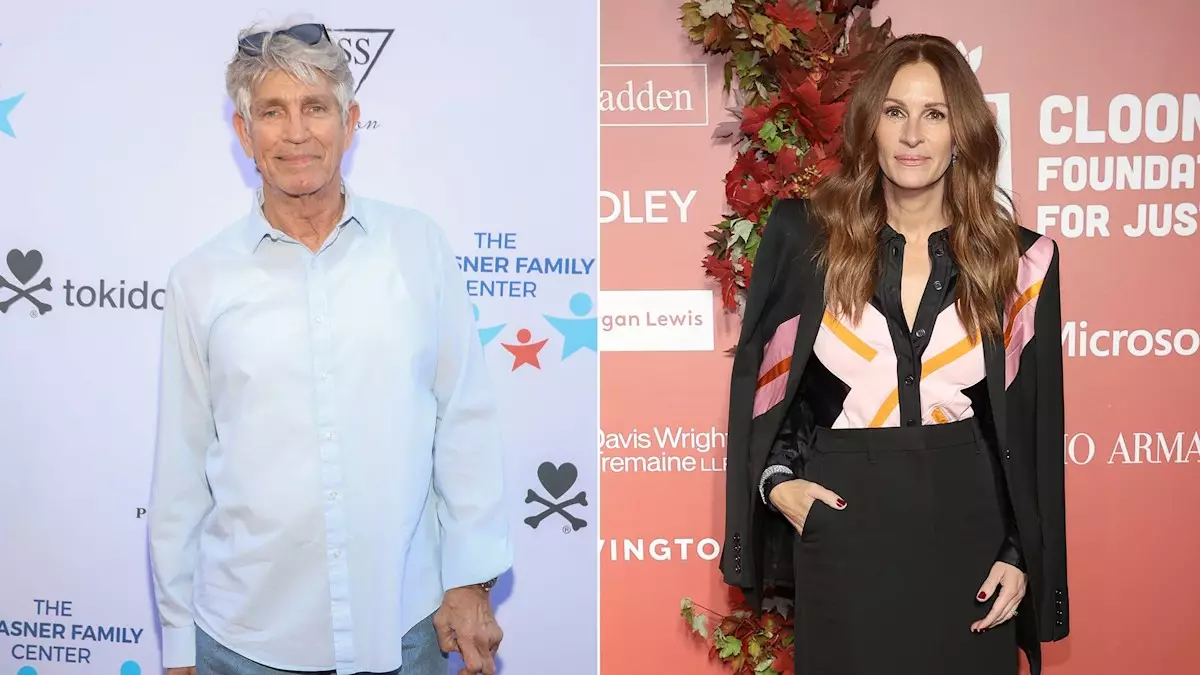In an age marked by social media squabbles and celebrity feuds, the recent public apology issued by Eric Roberts to his sister, Julia Roberts, casts a refreshing light on the complexities of familial relationships in the spotlight of Hollywood. Eric’s regret for his past statements about claiming to be the impetus behind Julia’s success not only reflects his personal journey but also opens a broader conversation about the nature of sibling dynamics, the weight of public perception, and the importance of accountability.
Eric Roberts, a seasoned actor best known for his roles in films like *The Dark Knight*, has recently released his memoir titled *Runaway Train: Or, the Story of My Life So Far*. In it, he courageously revisits the unsettling rift that has existed between him and Julia. The public joy and success the world affirms within Julia’s illustrious career have often overshadowed the pain and misunderstandings lurking beneath their surface-level relationship. Eric’s admission that he had previously taken credit for her rise to stardom underscores a troubling narrative: one that can easily fracture familial bonds in the cutthroat environment of the entertainment industry.
In his memoir, Eric reflects on how his thoughtless claims regarding Julia’s success contributed to a significant estrangement between them, lasting nearly a decade. He openly acknowledges, “If it wasn’t for me, there would be no Julia Roberts,” and admits the absurdity of such assertions. This kind of unfiltered honesty is commendable, particularly within the realm of celebrity culture where contrition often feels insincere or calculated. Here, Eric’s vulnerability reveals something profound about human relationships: the tendency to seek validation through the accomplishments of others can lead to unintended damage.
His revelation extends beyond professional jealousy; it delves deeply into the emotional fallout of family relationships. Eric expresses sorrow regarding a public statement he made about their mother’s death—an act he now recognizes as callous and self-serving. This recognition serves to elucidate a critical point: the wounds inflicted by careless words can last far longer than the moment in which they are spoken. By placing the spotlight on his own failings, Eric exhibits emotional growth that many can relate to, especially in a society where the pursuit of fame can overshadow familial integrity.
The intricacies of the Roberts family dynamic reveal a shared narrative of struggle and redemption. Eric’s candid commentary on his battles with drug addiction adds another layer to their story, indicative of how personal crises can intertwine with professional estrangements. While he speaks of loving his sisters, he does not shy away from acknowledging how his personal demons clouded the joy of their relationship. “The hardest person to protect yourself from is yourself,” he writes, a sentiment that resonates beyond the confines of Hollywood.
Despite their rocky past, it is heartening to learn that Eric and Julia rekindled their bond around the arrival of Julia’s twins in 2004. This poignant chapter illustrates that even the most complicated relationships can find moments of healing. The rekindling suggests a mutual understanding and respect have taken root, fostering a sense of familial unity in what has traditionally been perceived as a world steeped in competition and rivalry.
What Can We Learn?
Eric Roberts’ recent reflections and sincere apologies serve as a reminder of the importance of introspection and humility in familial relationships. Their narrative highlights the often-ignored struggles of siblings in a competitive industry, navigating public perceptions while trying to maintain personal connections.
As fans and observers, it is essential for us to remember that celebrities, despite their public personas, endure personal battles akin to anyone else. As Eric has demonstrated, the path to reconciliation is often paved with accountability, vulnerability, and a conscious effort to rebuild relationships. Whether through public apologies or private reconciliations, the hope for healthier familial dynamics remains important, not only in the world of Hollywood but in every family far removed from the spotlight.


Leave a Reply